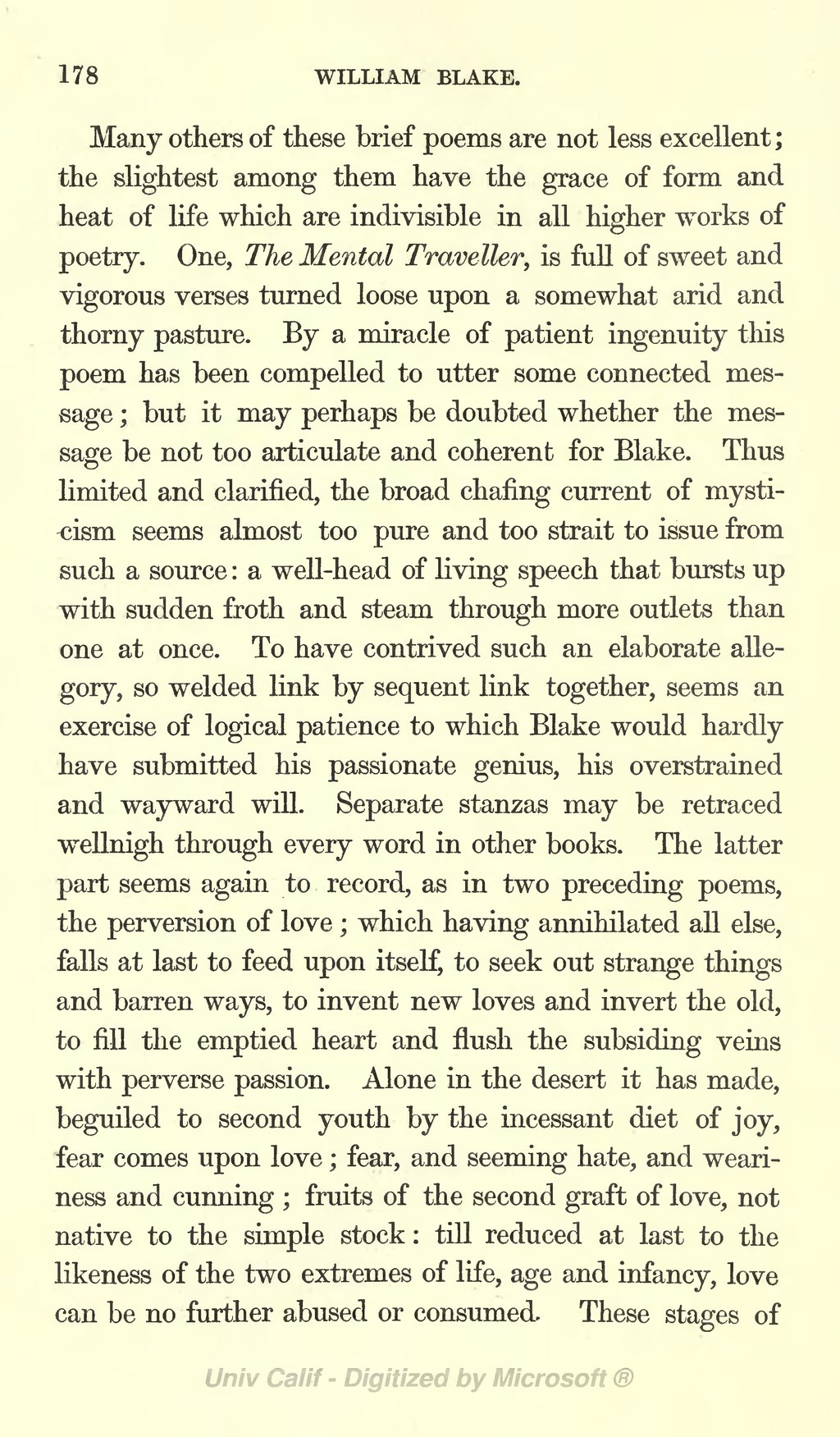Many others of these brief poems are not less excellent; the slightest among them have the grace of form and heat of life which are indivisible in all higher works of poetry. One, The Mental Traveller, is full of sweet and vigorous verses turned loose upon a somewhat arid and thorny pasture. By a miracle of patient ingenuity this poem has been compelled to utter some connected message; but it may perhaps be doubted whether the message be not too articulate and coherent for Blake. Thus limited and clarified, the broad chafing current of mysticism seems almost too pure and too strait to issue from such a source: a well-head of living speech that bursts up with sudden froth and steam through more outlets than one at once. To have contrived such an elaborate allegory, so welded link by sequent link together, seems an exercise of logical patience to which Blake would hardly have submitted his passionate genius, his overstrained and wayward will. Separate stanzas may be retraced wellnigh through every word in other books. The latter part seems again to record, as in two preceding poems, the perversion of love; which having annihilated all else, falls at last to feed upon itself, to seek out strange things and barren ways, to invent new loves and invert the old, to fill the emptied heart and flush the subsiding veins with perverse passion. Alone in the desert it has made, beguiled to second youth by the incessant diet of joy, fear comes upon love; fear, and seeming hate, and weariness and cunning; fruits of the second graft of love, not native to the simple stock: till reduced at last to the likeness of the two extremes of life, age and infancy, love can be no further abused or consumed. These stages of
Page:William Blake, a critical essay (Swinburne).djvu/194
This page has been validated.
178
WILLIAM BLAKE.
